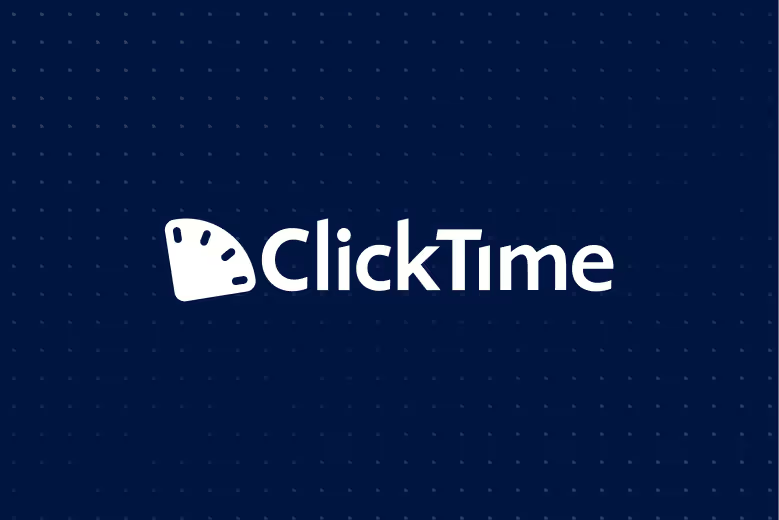Nine Reasons Why You Should Track Employee Time
Why is time tracking important? Time tracking offers real-time visibility into projects and surfaces key operational metrics that otherwise would remain hidden. Time tracking is important for benchmarking, budgeting, estimating, and compliance. It makes teams more effective, organizations more productive, and businesses more profitable.
1. Time Tracking Helps Create Better Workflows
How much time do employees spend doing their expenses? What is the organizational impact on preparing for an audit or interviewing employees? Tracking time at work answers these questions and many more. It reveals the true costs of business processes and provides executives, managers, and employees with critical time entry data. Leaders are then able to analyze this data which often leads to important operational insights.
2. Time Tracking Surfaces Hidden Costs
Between salary, benefits, healthcare, and PTO, businesses constantly struggle against the costs of labor. By tracking employee time, organizations are able to identify hidden cost centers and underperforming projects that would have otherwise stayed under the radar. By uncovering this data, they can often avoid costly overtime payments and project delays – both of which inflate your projects’ real cost.
3. Timesheets Help Enable Accurate Forecasting and Benchmarking
Time tracking at work reveals how long it really takes to complete a particular task or job. By leveraging historical time tracking data,, your organization can quickly create accurate internal benchmarks. This allows project managers, team leads, and executives to create accurate forecasts and estimates that ensure maximum profitability for any job.
4. Time Tracking Ensures Compliance and Expedites Audits
Accurate time tracking data makes it easy to stay in compliance with government and industry regulations, and significantly reduces the costs (and stress) of third-party audits. By using time tracking software, leaders can easily export and share reports with board members, funders, and all external stakeholders.
5. Timesheets Help You Compare Performance Across Business Units
Time entry data can show which teams, departments, divisions, or regions are the most or least profitable. Are certain parts of your organization over or under utilized? Can the business be restructured to increase profitability or work more effectively? Timesheet billing and cost data offer immediate insights that drive operational excellence and increased productivity.
6. Time Tracking Data Lets You Know When to Hire
Time tracking reveals important capacity insights. Before committing to project budgets and deadlines, managers need to optimize their workforces. Time tracking is effective because it will not only reveal whether you should hire, but it will also show if it’s more economical to hire full-time employees or contractors.
7. Timesheets and Reporting Data Helps You Conduct More Effective Employee Performance Reviews
With quantifiable employee cost, billability, and profit data, managers can conduct performance reviews without bias or favor. Identify which employees deserve merit-based compensation and have more meaningful dialog with underperformers.
8. Time Tracking Ensures Overtime Compliance
It’s essential that organizations with non-exempt employees use a system to track time. This is to ensure that all overtime hours are recorded and that payroll is properly distributed. Failure to accurately track employee overtime can lead to fines, lawsuits, and major disruptions in the office.
9. Timesheets Makes it Easier to Understand Employee Availability
When leaders enforce time tracking policies, they gain real-time understanding of employee utilization and availability. Armed with this knowledge, your organization can predict when and if a project is going over budget, and reduce the amount of non-billable or free work. This data also helps with understanding hiring needs, long-term project planning, and more.
The Downsides of Time Tracking
Despite the many benefits of time tracking, there are some disadvantages. Primarily, it’s important to consider how employees will react to time tracking policies. Some may assume you are tracking time to solely monitor employee activities whereas others may feel as though they are being watched.
Consequently, the employee/manager relationship could become strained without offering complete transparency as to why time tracking is important. Time tracking adoption will proceed smoother if you are able to clearly justify the reasons.
After the idea has been socialized, it’ll be time to find a software solution that makes time tracking easy for employees, but also gives you accurate data. Armed with this data, you’ll begin to see which initiatives are worth pursuing, and which ones have a high opportunity cost. This way, you can double-down on the initiatives that move your organization forward.
Who is Time Tracking Software Meant For?
Time tracking software is used across many different industries. Most all progressive companies today use cloud-based time tracking software applications that offer much more than providing a space for logging work hours. Businesses now expect project management tools, automated reporting features, and budget management tools all included in a time tracking platform.The following are a few popular use cases:
- Agencies – Agencies often employ both full time employees and contractors whose rates may vary. By tracking time, they can ensure they are properly paying their staff who may have different employment terms.
- Architecture and law firms – Architects and lawyers need to precisely calculate billable hours in order to properly charge their clients. Time tracking helps firms correctly capture time this time and invoice their clients accordingly.
- Nonprofits – Individuals or bodies who donate funds to nonprofits need to see how their money and resources are being used. If not, they may pull the plug on future funding. Not only this, but for many grants and/or federally-issued funding, nonprofits are required to report on payroll charged to those grants, which means time tracking records must be maintained. Time tracking software allows nonprofits to store these records securely.
- Service Professionals – Service Professionals require a specific business model that relies on accurate billing to generate profitability. Without time tracking tools, service professionals may suffer losses that are often hard to identify before time entry data has been collected.
- IT Teams – IT Teams often use time tracking for internal costing. The best time tracking tools allow them to recapture costs, increase productivity, and better communicate with internal stakeholders.
Conclusion
The benefits of tracking time are vast. When you understand how your team is spending their work hours, you gain greater control over project outcomes and ultimately your business’s success. Today, time tracking software helps myriad businesses in every industry optimize their efficiency, productivity, and profitability.





